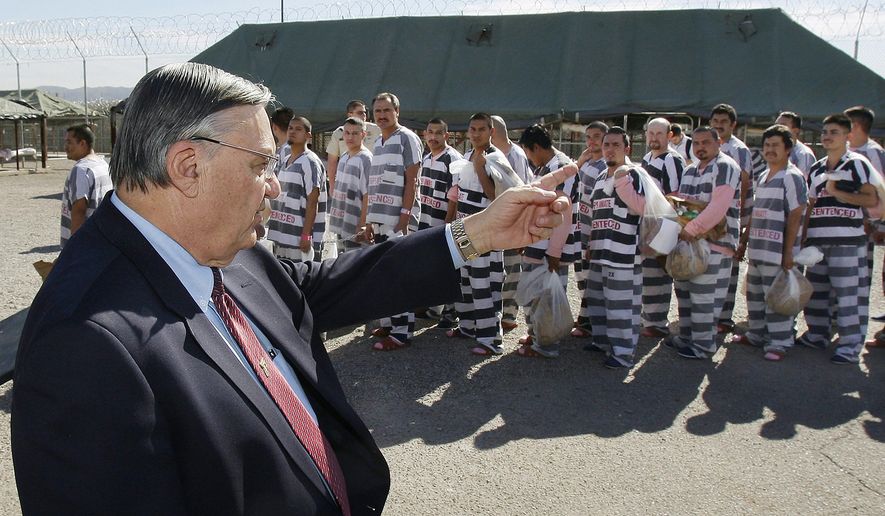PHOENIX (AP) - A U.S. judge ordered a sweeping overhaul nearly four years ago of the office then led by Sheriff Joe Arpaio after finding that his deputies had systematically racially profiled Hispanics in traffic patrols targeting immigrants.
The agency in metro Phoenix is still dogged by those problems after newly released findings say that its officers treat minorities differently than white people.
Some officers and supervisors are making the overhaul more difficult by resisting the changes, immigrant rights attorneys who brought the profiling case said in court Wednesday.
An audit conducted by criminal justice researchers at Arizona State University as part of the racial profiling case said Hispanics are more likely to be searched and arrested by deputies in traffic stops than whites.
The study, released last week, examined 31,000 traffic stops from July 2015 through June 2016, near the end of Arpaio’s 24-year tenure.
“The likelihood of Hispanics being arrested or searched over time has not decreased, or even changed,” wrote the researchers, who had conducted an earlier study of the agency’s traffic stops. “Conversely, the length of stop for Hispanic drivers, while still longer than whites, decreased across years.”
It was released a month after President Donald Trump pardoned Arpaio for his misdemeanor conviction of intentionally disobeying a court order in the profiling case.
Thirty-three Democrats in Congress filed a friend-of-the-court brief Wednesday that asks the judge in Arpaio’s criminal case to reject the pardon and move forward with his sentencing. They argue the pardon is an invalid encroachment by the president on the power and independence of the courts.
Jeffrey Crouch, a professor of politics at American University who has written a book on presidential pardons, said the Democrats’ request is extremely unusual.
“I highly doubt whether they will be able to overturn Arpaio’s pardon,” Crouch said, adding that Democrats’ goal may be to generate interest in the controversy.
Sheriff Paul Penzone, who took office in January after defeating Arpaio, is developing plans for confronting the problems identified in the new audit, including training for deputies and their supervisors.
Penzone said it will take time to change the agency’s culture. He said his office will confront those problems through discussions with employees, training and, if needed, firings.
“Resistance won’t be tolerated,” Penzone said.
Cecillia Wang, one of the lawyers who pressed the profiling case against the agency, said the court-ordered changes are being complicated by some of the agency’s supervisors who were recruited by Arpaio and believe they have a duty to protect officers against allegations of bias.
U.S. District Judge Murray Snow expressed frustration with the delay in setting up an alert system to help supervisors identify problematic behavior by officers.
The system was ordered nearly four years ago, yet training for its use is just now underway.
“I am a little tired of this process taking this long,” Snow said.
Another report issued this summer by officials who are monitoring the agency on the judge’s behalf charts the status of the sheriff’s office in complying with the court-ordered overhaul.
The agency was deemed 40 percent compliant with the first phase and 58 percent compliant in phase two, according to the report, which covered the first three months of this year.
Taxpayers in metro Phoenix are on the hook for legal costs in the case until the sheriff’s office fully complies with the court-ordered changes for three straight years. By next summer, the costs are expected to reach $92 million.
___
Follow Jacques Billeaud at twitter.com/jacquesbilleaud. His work can be found at https://www.apnews.com/search/jacques%20billeaud .




Please read our comment policy before commenting.